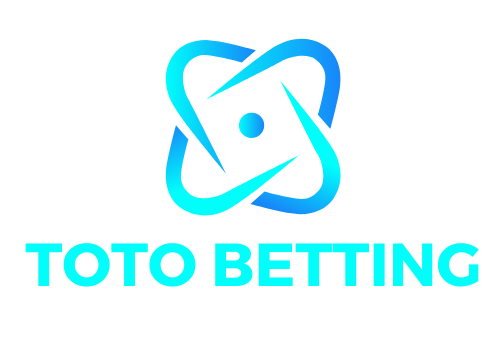Evaluating the Trustworthiness of Betting Site Licensing Authorities
In an era where online betting has become increasingly popular, ensuring the trustworthiness and legitimacy of the 슈어맨TV platforms we use is paramount. One crucial aspect of this is the licensing authority that oversees these betting sites. But how do we evaluate the trustworthiness of these authorities? In this comprehensive guide, we’ll delve into the factors that determine the reliability of betting site licensing authorities, helping you make informed decisions about where to place your bets.
Understanding the Role of Licensing Authorities:
Before delving into the evaluation process, it’s essential to grasp the fundamental role that licensing authorities play in the online betting industry. These regulatory bodies are responsible for issuing licenses to operators, ensuring they comply with specific standards and regulations. Licensing authorities act as gatekeepers, safeguarding the integrity of the betting industry and protecting consumers from fraudulent activities. Without effective regulation, the online betting landscape would be rife with scams, unscrupulous operators, and a lack of accountability.
Betting site licensing authorities play a pivotal role in shaping the online gambling landscape, ensuring that operators adhere to strict standards of integrity, fairness, and player protection. By licensing and regulating betting sites, these authorities contribute to a safer, more transparent, and responsible gambling environment for players worldwide.
Reputation and History:
A key indicator of trustworthiness is the reputation and history of a licensing authority. Researching the background of the authority, including any past controversies or scandals, can provide valuable insights into its reliability. Authorities with a long-standing history of effective regulation and a clean track record are more likely to inspire confidence among bettors. Conversely, authorities with a tarnished reputation or a history of regulatory failures should be approached with caution. Look for reviews, news articles, and industry analyses to gauge the public perception of a licensing authority.
Transparency and Accountability:

Transparency and accountability are crucial traits of a trustworthy licensing authority. Betters need assurance that the authority operates with integrity and fairness, adhering to clear and consistent regulatory standards. Look for evidence of transparent processes, public disclosures, and mechanisms for holding the authority accountable for its actions. This includes the publication of licensing criteria, regulatory guidelines, enforcement actions, and financial reports. A transparent licensing authority fosters trust and confidence in the regulatory framework, empowering bettors to make informed decisions.
Regulatory Framework:
The regulatory framework established by a licensing authority serves as the backbone of its oversight activities. Assess the comprehensiveness and effectiveness of the regulations in place, including measures for consumer protection and responsible gambling. A robust regulatory framework should cover various aspects of online betting, including licensing requirements, technical standards, advertising rules, and dispute resolution mechanisms. Evaluate whether the regulations align with industry best practices and international standards, ensuring a level playing field for operators and bettors alike.
Compliance Standards:
An effective licensing authority sets rigorous compliance standards for operators to follow. Evaluate the extent to which the authority enforces these standards and punishes non-compliance, as this directly impacts the integrity of betting sites. Look for evidence of proactive enforcement actions, such as license suspensions, fines, or revocations, against operators that violate regulatory requirements. Additionally, consider whether the authority provides guidance and support to help operators achieve compliance, fostering a culture of regulatory adherence within the industry.
Consumer Protection Measures:
Protecting consumers from fraud, exploitation, and harm should be a top priority for any licensing authority. Look for evidence of robust consumer protection measures, such as dispute resolution mechanisms, anti-money laundering protocols, and safeguards against underage gambling. A trustworthy authority should have mechanisms in place to handle consumer complaints and ensure fair treatment of bettors. This includes monitoring operators’ adherence to responsible gambling practices, such as self-exclusion programs, deposit limits, and awareness campaigns about the risks of gambling addiction.
Technological Capabilities:
In today’s digital age, the ability of a licensing authority to adapt to technological advancements is essential. Evaluate whether the authority employs sophisticated monitoring systems and utilizes data analytics to detect and prevent fraudulent activities. This includes monitoring betting patterns, transactional data, and player behaviors to identify suspicious activities indicative of fraud or money laundering. A technologically savvy authority can stay ahead of emerging threats and maintain the integrity of the betting ecosystem in an increasingly complex digital landscape.
International Cooperation:
Collaboration with other regulatory bodies on a global scale is indicative of a licensing authority’s commitment to upholding industry standards and combating illicit activities. Evaluate the extent of international cooperation and partnerships established by the authority. This includes participation in joint enforcement actions, information sharing initiatives, and membership in international regulatory networks. By working closely with counterparts in other jurisdictions, a licensing authority can enhance its regulatory effectiveness and address cross-border challenges, such as match-fixing and illegal gambling operations.
Financial Stability:
The financial stability of a licensing authority can impact its ability to effectively regulate the betting industry. Look for evidence of adequate funding, sustainable revenue streams, and financial independence from industry influences. A financially stable authority is better equipped to invest in regulatory infrastructure, hire qualified staff, and implement technology upgrades necessary for effective oversight. Additionally, financial independence reduces the risk of regulatory capture or undue influence from vested interests, ensuring impartial decision-making in the public interest.
Independent Audits and Reviews:
Finally, independent audits and reviews of a licensing authority’s performance can provide valuable insights into its trustworthiness. Seek out assessments conducted by reputable third parties or industry experts to supplement your research. These audits may evaluate the authority’s regulatory effectiveness, adherence to best practices, and overall governance structure. Look for evidence of transparency in the audit process, including public release of audit reports and responses to audit findings. Independent scrutiny helps hold licensing authorities accountable and promotes continuous improvement in regulatory practices.
Evaluating the trustworthiness of betting site licensing authorities requires a comprehensive approach that considers multiple factors. By examining aspects such as reputation, transparency, regulatory framework, and consumer protection measures, bettors can make more informed decisions about which platforms to trust with their money. Ultimately, a reliable licensing authority serves as a cornerstone of a fair, transparent, and accountable online betting industry. As the online betting landscape continues to evolve, ongoing scrutiny and vigilance are essential to ensure that licensing authorities uphold the highest standards of integrity and regulatory excellence.








 Sunglasses
Sunglasses